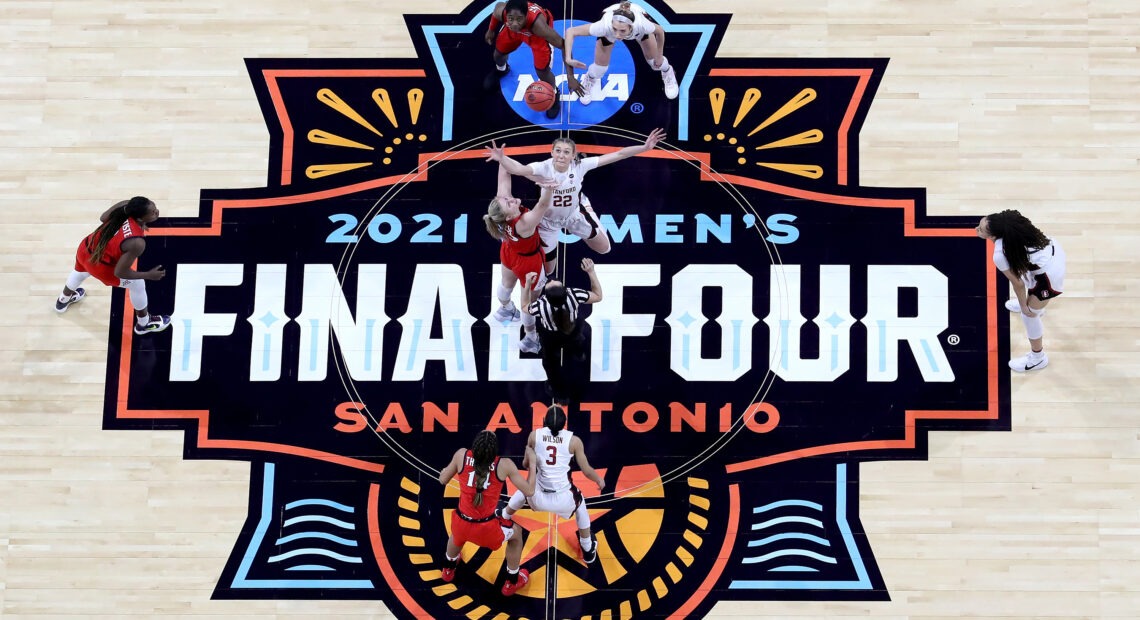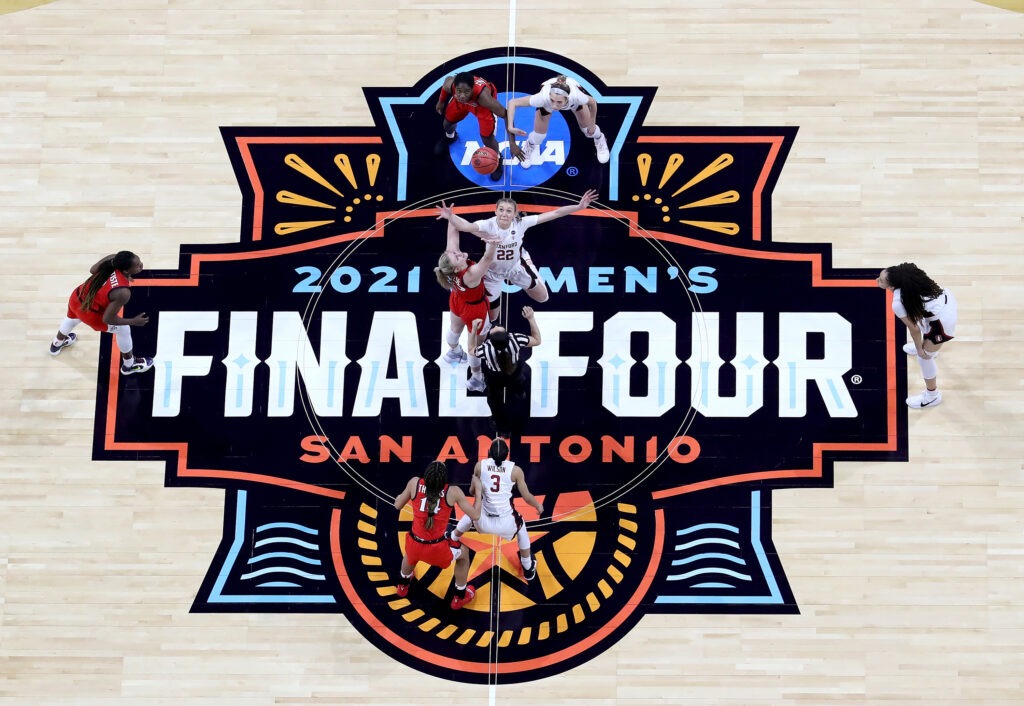
Congress Urged To Act As States Start Allowing Outside Cash For Student Athletes
BY TOM GOLDMAN
College sports are about to change dramatically and Congress needs to act quickly in order to ensure fairness.
That was the message Wednesday on Capitol Hill, at a lengthy senate hearing about new state laws that’ll allow college athletes to make money off the use of their name, image and likeness. The money would not be from the athlete’s school.
On July 1, at least five state laws go into effect, allowing college athletes to, among other things, get paid for endorsements, personal appearances and content on social media. They’ll be able to hire agents.
Also Wednesday, Connecticut became the latest state to pass NIL legislation, the abbreviation for name, image and likeness. Nearly 20 states have passed NIL laws.
After the nearly three-hour hearing in the Senate Committee on Commerce, Science and Transportation, a session notably missing athlete and female witnesses, a consensus emerged among lawmakers and the witnesses who did appear – Congress needs to pass a national NIL law to avoid potential inequities with a state-by-state approach.

Cameron Brink #22 of the Stanford Cardinal and Cate Reese #25 of the Arizona Wildcats fight for the opening tipoff during the National Championship game of the 2021 NCAA Women’s Basketball Tournament at the Alamodome on April 4 in San Antonio, Texas. The Stanford Cardinal defeated the Arizona Wildcats 54-53 to win the national title. CREDIT: Elsa/Getty Images
A major concern is college athlete recruiting. Will schools in states that have NIL laws have an advantage over schools in states that don’t?
Yes, said Mark Few, the head men’s basketball coach at Gonzaga, which lost in the NCAA Tournament final to Baylor in April.
“We recruit nationally, even internationally,” Few said. “To not have the ability to compete on some sort of level playing field, with people that can provide monetary gifts or endorsements or things like that would put us at a disadvantage that we couldn’t make up.”
Legal Analyst and Senior Sports Legal Reporter at Sportico Michael McCann, told the committee he agrees a national law would be the most sensible approach to NIL, as a way to guarantee college athletes throughout the country can take advantage of financial opportunities.
A wide variety of athletes too.
“This is not just about the star quarterback,” McCann said, adding, “per Axios, eight of the 10 most followed [on social media] [NCAA Tournament] Elite-8 basketball players from this year, were women. They could earn through social media influencing. Other athletes could sponsor camps back home. We sometimes think of NIL as big endorsement deals but it doesn’t have to be that. NIL won’t make many athletes rich, but it could make college a lot more affordable.”
While McCann believes a national model makes most sense, he praised the state laws for filling “a vacuum left by the NCAA and Congress,” and passing NIL statutes “in remarkably bipartisan ways.”
As far as why there’s been a vacuum, NCAA President Mark Emmert assumed his increasingly common position, on the hot seat, at Wednesday’s hearing.
“We’ve been having this argument [on compensating college athletes] for over a decade,” said New Mexico Senator Ben Ray Lujan. “It’s common sense. Coaches have been making millions of dollars while [student athletes] are making nothing. Dr. Emmert can you answer [why it’s taken so long]?”
“It’s a very challenging topic obviously,” Emmert said. “The NCAA rules are all made by the schools themselves, through a representative body that functions very much like Congress does. They have been debating, discussing this and working toward this moment for at least three years now. And it is a very complicated subject. Coming up with the general consensus about what the outcome should be has been relatively easy – getting people to agree on the details of it has been extraordinarily complex. But I’m very hopeful that we finally have the schools at a place right now where they’re ready to pass a national standard. That however will not alleviate the need for federal legislation.”
According to McCann, the NCAA still hasn’t changed rules prohibiting athletes from signing endorsement deals, sponsorship agreements or influencer arrangements. The NCAA Division 1 Council meets later this month and could act on NIL then.
It’s still not clear though whether that action, or federal legislation, will supersede the growing number of state NIL laws being passed.
At least one lawmaker at the hearing wasn’t buying Emmert’s explanation that the NCAA has been limited by its position and the complexity of the issue.
“Let’s be very real here,” said Connecticut Senator Richard Blumenthal, a longtime NCAA critic and proponent for college athlete rights, “the NCAA is at the table only because it’s been hauled kicking and screaming here. After dithering and delaying too long. And they’re here only because they fear that patchwork [of a state-by-state approach]. The states are in effect running to the top. The NCAA in its rules, nothing personal Dr. Emmert, is racing to the bottom common denominator. And we have to avoid that happening.”
Blumenthal, along with New Jersey Senator Cory Booker, who testified before the Committee, has been promoting a comprehensive College Athletes Bill of Rights and used the hearing as a way to once again speak out on what he says are the myriad issues facing college athletes, beyond NIL compensation. Issues such as long-term health care, educational protections, sexual assault, powerlessness in the face of coaches.
McCann agrees these are “absolutely important” issues that need to be addressed soon. But he stressed to the committee the need for NIL reform “to focus on NIL.”
“NIL gravitates toward one area of law,” McCann said, “the right of publicity. And [it] needs immediate attention.”
Committee Chair Maria Cantwell of Washington says the two-hour, 45 minute hearing proves Senators are giving their full attention.
“I think as you can see my colleagues are ready to dig in,” Cantwell said. “More than half of them participated in this and that is a lot for a United States Senate to be as active on this policy. So you can see the determination. We’re determined to get this done.”















